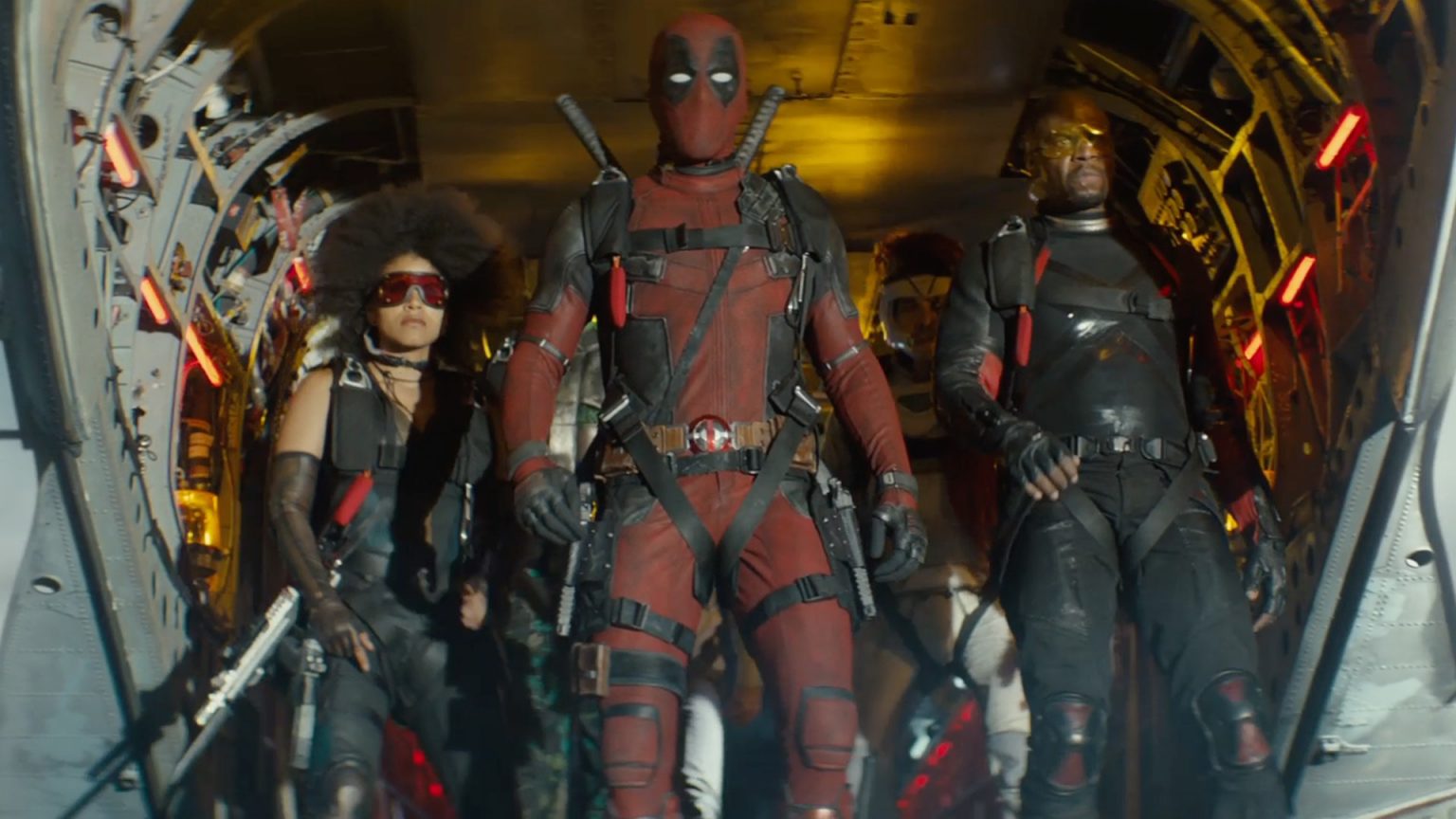How do you top the lightning-in-a-bottle success of the first Deadpool? Like every other comic book movie, the sequel gets bigger, louder, and doubles down on everything that made the first a hit but at the cost of losing some of its edges.
The first film was an origin story that righted the wrongs of Ryan Reynolds’ brief (and entirely forgettable) appearance as the Merc-with-a-Mouth in X-Men Origins: Wolverine. In fact, Deadpool got great mileage out of tearing down that film’s existence, as well as Reynolds’ appearance in the disaster that was Green Lantern. It takes these cinematic jabs by utilizing the tried and true hallmarks of every comic book movie origin story ever. Of course, it accomplishes this with a lot of subversive humor that points out the tropes and clichés that Hollywood superhero movies beat to death.
Because of this, Deadpool is a knowing deconstruction of the corporate studios churning out superhero movies for the summer blockbuster season, while admitting to us and itself, that it is also one of those corporate superhero franchise movies. Deadpool 2 does the same, but steps outside its own parameters in an attempt to create a social commentary on race, gender, the cycle of violence, and America’s obsession with “nice-and-tidy” superheroes.
After death, that should have felt shocking, but instead feels like a crutch, Deadpool feels guilty due to his murderer-for-hire jobs. He decides to hang up his gun and mask—literally trying to kill himself to one-up Logan. Yet extenuating circumstances thrust him back into the anti-hero life in order to save a young mutant named Firefist (Julian Dennison) from his own future and from Deadpool’s newest antagonist: Cable (Josh Brolin).
Cable is a mercenary from the future who has seen the murderous monster that Firefist will become, and travels back in time to prevent Firefist from growing into that monster by any means necessary.
In helping the young Firefist, Deadpool attempts to prevent the escalation of violence. The journey of the story, in many ways, makes him a softer, more compassionate person towards the people around him. It’s a good ‘ole “family and friends come first” message—that just happens to be in one of the gorier films of 2018.
Deadpool 2 is a clever enough movie to play into this message for the audience, making sure they are invested in the characters outside of Deadpool himself—who by box office numbers alone has clearly won over fans. Cable, being the main villain (for a while at least), his motivations for his actions and thus, could have easily occupied a larger role in the movie. Why is it that Cable wants to kill a fourteen-year-old mutant? What does the future look like? These questions are answered with just enough development that Cable proves to be a fascinating adversary for Deadpool.
But for a film that pokes fun at how Cable sounds awfully familiar to Thanos in Avengers: Infinity War (both are played by Brolin), or how overly dramatic the DCEU and Batman movies are, the breaking of the fourth wall subverts the deeper emotional climax the film is building towards.
There’s also the unfortunate and unnecessary inclusion of TJ Miller in the film. In fact, he has more screen time here than in the first movie, despite the troubling allegations that have been levied against him.
None of this is to say Deadpool 2 is a “bad” film. Reynolds was born to play the role, and he clearly relishes every joke in the film—even if only half of the land. And Julian Dennison proves his breakout performance in Taika Waititi’s The Hunt for the Wilderpeople was no fluke. Despite being the youngest cast member with significant screen time, Dennison holds his own in the comedy department—dropping one-liners and pop culture references left and right. Even more impressively, Dennison earns the film’s sudden third act emotional payoff. And if a Deadpool 3 does happen, with the cast of Reynolds, Brolin, Dennison, and Zazie Beetz (in a scene-stealing turn as Domino), the franchise has a great template to go forward with.
At the end of the day, Deadpool 2 very willingly says most of this doesn’t matter and that everything is in good fun. But when a film’s best, most discussion-worthy scene is in the post-credits—which also operates as a glorious middle finger to other Marvel-themed post-credits scenes—it may be a sign that things are running out of steam.




